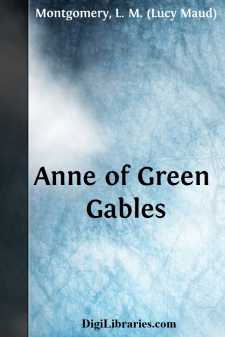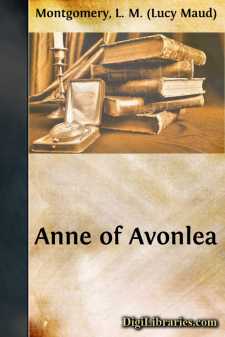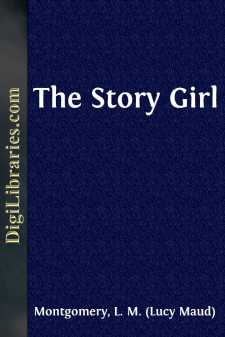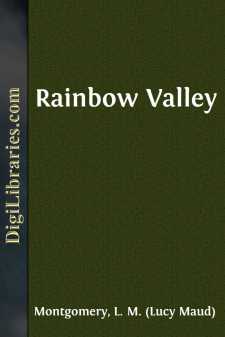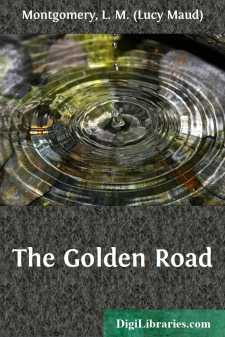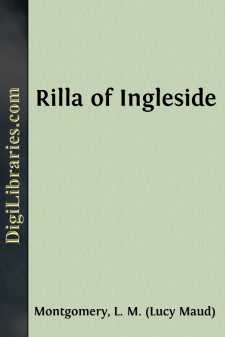Categories
- Antiques & Collectibles 13
- Architecture 36
- Art 48
- Bibles 22
- Biography & Autobiography 813
- Body, Mind & Spirit 142
- Business & Economics 28
- Children's Books 17
- Children's Fiction 14
- Computers 4
- Cooking 94
- Crafts & Hobbies 4
- Drama 346
- Education 46
- Family & Relationships 57
- Fiction 11829
- Games 19
- Gardening 17
- Health & Fitness 34
- History 1377
- House & Home 1
- Humor 147
- Juvenile Fiction 1873
- Juvenile Nonfiction 202
- Language Arts & Disciplines 88
- Law 16
- Literary Collections 686
- Literary Criticism 179
- Mathematics 13
- Medical 41
- Music 40
- Nature 179
- Non-Classifiable 1768
- Performing Arts 7
- Periodicals 1453
- Philosophy 64
- Photography 2
- Poetry 896
- Political Science 203
- Psychology 42
- Reference 154
- Religion 513
- Science 126
- Self-Help 84
- Social Science 81
- Sports & Recreation 34
- Study Aids 3
- Technology & Engineering 59
- Transportation 23
- Travel 463
- True Crime 29
Kilmeny of the Orchard
Description:
Excerpt
CHAPTER I. THE THOUGHTS OF YOUTH
The sunshine of a day in early spring, honey pale and honey sweet, was showering over the red brick buildings of Queenslea College and the grounds about them, throwing through the bare, budding maples and elms, delicate, evasive etchings of gold and brown on the paths, and coaxing into life the daffodils that were peering greenly and perkily up under the windows of the co-eds' dressing-room.
A young April wind, as fresh and sweet as if it had been blowing over the fields of memory instead of through dingy streets, was purring in the tree-tops and whipping the loose tendrils of the ivy network which covered the front of the main building. It was a wind that sang of many things, but what it sang to each listener was only what was in that listener's heart. To the college students who had just been capped and diplomad by "Old Charlie," the grave president of Queenslea, in the presence of an admiring throng of parents and sisters, sweethearts and friends, it sang, perchance, of glad hope and shining success and high achievement. It sang of the dreams of youth that may never be quite fulfilled, but are well worth the dreaming for all that. God help the man who has never known such dreams—who, as he leaves his alma mater, is not already rich in aerial castles, the proprietor of many a spacious estate in Spain. He has missed his birthright.
The crowd streamed out of the entrance hall and scattered over the campus, fraying off into the many streets beyond. Eric Marshall and David Baker walked away together. The former had graduated in Arts that day at the head of his class; the latter had come to see the graduation, nearly bursting with pride in Eric's success.
Between these two was an old and tried and enduring friendship, although David was ten years older than Eric, as the mere tale of years goes, and a hundred years older in knowledge of the struggles and difficulties of life which age a man far more quickly and effectually than the passing of time.
Physically the two men bore no resemblance to one another, although they were second cousins. Eric Marshall, tall, broad-shouldered, sinewy, walking with a free, easy stride, which was somehow suggestive of reserve strength and power, was one of those men regarding whom less-favoured mortals are tempted seriously to wonder why all the gifts of fortune should be showered on one individual. He was not only clever and good to look upon, but he possessed that indefinable charm of personality which is quite independent of physical beauty or mental ability. He had steady, grayish-blue eyes, dark chestnut hair with a glint of gold in its waves when the sunlight struck it, and a chin that gave the world assurance of a chin. He was a rich man's son, with a clean young manhood behind him and splendid prospects before him. He was considered a practical sort of fellow, utterly guiltless of romantic dreams and visions of any sort.
"I am afraid Eric Marshall will never do one quixotic thing," said a Queenslea professor, who had a habit of uttering rather mysterious epigrams, "but if he ever does it will supply the one thing lacking in him."
David Baker was a short, stocky fellow with an ugly, irregular, charming face; his eyes were brown and keen and secretive; his mouth had a comical twist which became sarcastic, or teasing, or winning, as he willed....



